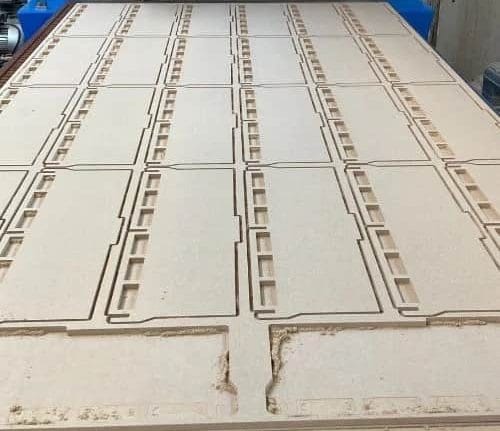12th Dec 2023
Prototyping and rapid iteration in CNC woodworking
As you know, this year we installed and commissioned a new CNC Machining Centre, and we have found it far more versatile than we had originally planned, namely for CNC prototyping and early design input for our customers.
Early design validation
The facility for rapid prototyping through quickly transforming digital designs into physical prototypes, allows our customers to validate concepts in the real world, not just on a drawing. This means that they can prove factors such as form, fit, and function and we can work together to iron out any problems with design issues very early in the development cycle.
Time and cost efficiency
Traditional prototyping methods, for example using hand tools, can be time-consuming and costly. CNC technology streamlines this process by automating the manufacturing of prototypes. This reduced the time and resources required to make prototypes. Designers can run through options quickly and experiment with various design elements cost effectively.
Enhanced collaboration
The quick turnaround time in CNC prototyping can also facilitates collaboration among team members and stakeholders. Designers can easily share physical prototypes for feedback, fostering a collaborative environment that encourages input from various perspectives and from all levels. This iterative feedback loop can contribute to the development of more refined and well-thought-out designs.
Reduced material waste
CNC woodworking can also minimise material waste during the prototyping phase. Since the machine precisely follows the digital design, there is very little room for error, leading to less material being wasted in the production of prototypes. This aligns with sustainability goals by reducing the environmental impact associated with material usage.
Customisation and local production
By enabling the creation of customised, made-to-order pieces, CNC woodworking promotes a more sustainable approach to manufacturing. This contrasts with mass production methods that often lead to overproduction, excess inventory and in extreme cases, unsold products being sent straight to recycling or even landfill. Customisation aligns production with actual demand, reducing unnecessary waste.
At Dymond, we are happy to work with you from product prototypes through to bulk manufacture. Working through this iterative process together ensures that you will have the best products for yourself or your customers.

